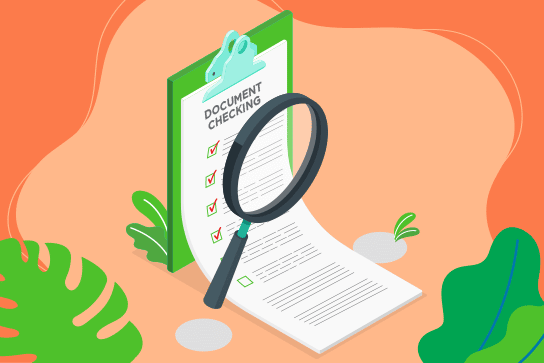LISTEN AUDIO
Last Updated on July 28, 2025 by Ozlinks Education
Study speech pathology in Australia, a doorway to PR
We get to be a part of people’s incredibly touching experiences because we help make these things happen. Working in speech pathology is rewarding because you get to impact the lives of your patients. Overall, it’s a rewarding line of work. Working with patients throughout their journey and seeing them succeed is one of the most rewarding aspects of being a speech-language pathologist (SLP). Finding contentment and enjoyment in one’s profession is much easier.
Because of your wide skill set, you will have several job options after graduation. Speech pathologists can work from anywhere using telehealth technology, including hospitals, nursing homes, community health centres, schools, private practise, rehabilitation facilities, and corporations.
Why should you study speech pathology in Australia?
An Australian university education equips you with transferrable skills that will help you succeed in any field. This will enable you to meet new people, experience new cultures, broaden your horizons, and demonstrate to potential employers that you are open to new experiences. Speech pathologists are able to work in a variety of contexts, including early childhood education, higher education, long-term care, and community health facilities. Speech pathologists can work independently in the public or private sector or as part of an interdisciplinary team with physiotherapists, occupational therapists, physicians, audiologists, and psychologists, among others.
Through creative learning activities and professional practise experiences, you will be equipped to assist clients in the acquisition, rehabilitation, and maintenance of age-appropriate communication, feeding, and swallowing abilities.
Bachelor of Speech Pathology in Australia
The Speech Pathology Bachelor’s Degree course takes four years to complete. The first two years of the programme focus on developing professional competencies essential for ethical and safe practice, high-quality care, and the ability to work in multidisciplinary teams through evidence-based studies in speech pathology as well as a broad understanding of biomedical and health science, linguistics, and psychology.
In the final two years of study, students learn advanced speech pathology and clinical practice skills that they will utilise to treat patients in the community through various clinical assignments.
The program has been created to meet the certification standards of Speech Pathology Australia and is a qualifying program with Speech Pathology Australia.
Where can I study speech pathology in Australia?
There are distinctions between each university degree, but all programmes must meet the Speech Pathology Australia certification standards for graduating students to be eligible for membership in Speech Pathology Australia. The Australian university programmes that currently offer speech pathology degrees are listed here, along with their accreditation classification and current accreditation term.
Speech Pathology courses in Australia
|
State |
City |
University |
Program |
|
NSW |
Sydney |
Australian Catholic University |
|
|
NSW |
Albury |
Charles Sturt University |
|
|
NSW |
Coffs Harbour |
Southern Cross University |
|
|
NSW |
Newcastle |
University of Newcastle |
|
|
NSW |
Sydney |
University of Sydney |
Bachelor of Applied Science (Speech Pathology) (+/- Honours) |
|
NSW |
Sydney |
Western Sydney University |
Bachelor of Speech Pathology (+/- Honours) |
|
NT |
*Darwin |
Charles Darwin University |
Bachelor of Health Science/Master of Speech and Language Therapy |
|
QLD |
Brisbane |
Australian Catholic University |
|
|
QLD |
Rockhampton |
Central Queensland University |
Bachelor of Speech Pathology (Honours) |
|
QLD |
Townsville |
James Cook University |
|
|
QLD |
Gold Coast |
Southern Cross University |
|
|
QLD |
Brisbane |
University of Queensland |
|
|
QLD |
Ipswich |
University of Southern Queensland |
|
|
SA |
Adelaide |
Flinders University |
|
|
SA |
Renmark, Mount Gambier, Port Pirie |
Flinders University |
|
|
SA |
Adelaide |
University of Adelaide |
Bachelor of Speech Pathology (Honours) |
|
SA |
Adelaide |
University of South Australia |
|
|
VIC |
Melbourne |
Australian Catholic University |
|
|
VIC |
Gippsland, Ballarat, Berwick* |
Federation University |
|
|
VIC |
Melbourne (Bundoora) and Bendigo |
La Trobe University |
|
|
VIC |
Melbourne (Bundoora) |
La Trobe University |
|
|
VIC |
Bendigo |
La Trobe University |
|
|
VIC |
Melbourne |
Victoria University |
Bachelor of Speech and Language Sciences / Master of Speech Pathology |
|
VIC |
Melbourne |
Victoria University |
|
|
WA |
Perth |
Curtin University |
|
|
WA |
Perth |
Edith Cowan University |
Watch Speech Pathology Simulation Clinic at The University of Queensland
Speech pathology pathway to PR
There are two main speech pathology career pathway that can help international students and migrants gain permanent residency in Australia.
ANZSCO: 252711 Audiologist
Assesses and treats people with communication disorders, such as speech, language, voice, fluency and literacy difficulties, and people who have physical problems with eating or swallowing. Registration or licensing is required.
For a full visa option, visit ANZSCO: 252711
ANZSCO: 252712 Speech Pathologist
Assesses and treats people with communication disorders, such as speech, language, voice, fluency and literacy difficulties, and people who have physical problems with eating or swallowing. Registration or licensing is required.
For a full visa option, visit ANZSCO: 252712
What does a speech pathologist do?
Speech-language pathologists (SLPs) and audiologists provide diagnostic assessment and rehabilitation services related to human hearing defects, and assess and treat people with communication disorders and physical problems associated with eating and swallowing.
Their job involves:
- administering and interpreting a wide range of audiometric tests to determine hearing efficiency and locate sites of detected hearing problems
- interpreting audiometric test results alongside other medical, social and behavioural diagnostic data
- evaluating total response pattern and acoustic tests to distinguish between organic and non-organic hearing loss
- planning, directing and participating in counselling, speech reading and other rehabilitation programs
- prescribing appropriate hearing aids and instructing patients in use
- administering tests and observing patients to determine nature and extent of disorders
- planning and conducting programs of remedial exercise to correct disorders such as stuttering and abnormal articulation
- administering individual and group therapy for rehabilitation of patients with communication problems caused by defective hearing, cerebral palsy, surgery and injury
- advising on treatment for children with difficulties in learning to speak
- counselling and guiding language-handicapped individuals, their families, teachers and employers
If you are an international student or migrant with a Speech Pathology degree, you can migrate to Australia as the occupation is listed on the Medium Long Term Strategic Skills List (MLTSSL) and the Skilled Occupation List (SOL). The MLTSSL is a list of high-demand occupations defined by the Departments of Education and Training and Home Affairs Australia.
For more information about the potential visa pathways, visit the links below:
- ANZSCO: 252711 Audiologist
- ANZSCO: 252712 Speech Pathologist
Skill Assessment for Migration
To apply for skilled migration visas, you must first obtain a skill assessment from an Australian assessing body. There are two skill assessment pathways in Australia for assessing competency to practice as a speech pathologist. Each pathway has its own set of standards.
Pathway 1: Mutual Recognition Agreement (MRA)
The applicant must be certified by being a member of one of the signatories MRA groups.
The candidate must have completed professional education to become a speech pathologist in a nation that has signed one of the MRA Agreements listed below:
Associates
- The American Speech-Language-Hearing Association, (ASHA), USA.
- Speech-Language & Audiology Canada, (SAC), Canada
- The Irish Association of Speech and Language Therapists (IASLT), Ireland.
- The New Zealand Speech-Language Therapists’ Association (NZSTA), New Zealand.
- The Royal College of Speech and Language Therapists, (RCSLT), United Kingdom.
Pathway 2: Overseas Qualification Competency
If you are not qualified to apply for Mutual Recognition of Credentials (MRA) but have evidence of your competence as a speech pathologist, you should complete the Overseas Qualification Competency assessment.
You should apply for the Overseas Qualification Competency Assessment if:
- Your qualifications are comparable to those of speech pathologists trained in Australia.
- You can use English effectively in the Australian speech pathology context.
- You have practiced as a speech pathologist for at least 1000 hours in the last five years if you graduated more than five years ago, OR you have a minimum of 12 months of practice experience if you graduated less than five years ago.
All these conditions must be met for you to be assessed for Certified Practising Membership in the Association.
The Overseas Qualification Competency Assessment process assumes you have experience. working as a speech pathologist. Individuals must demonstrate that they have worked for a minimum of 1000 hours or approximately 12 months to be eligible to apply. Evidence from Student work will not be accepted on its own.
Need help getting started as a speech pathologist?
Get in touch with Ozlinks Education to learn more about the services we offer. Ozlinks Education can help you with anything from obtaining a visa to applying to your preferred university for a speech pathology degree. Get in touch with us!
Disclaimer:
This section does not intend to provide immigration assistance pursuant to section 276 of Migration Act (Cth) 1994 as described in the Migration laws. It is based on public guidelines available at Department of Home Affairs’ Website. It is your responsibility to verify accuracy and status of provided information with your Registered Migration Agent (RMA) who is bound by the MARA code of conduct before submitting any visa applications.
Although every effort has been made to provide complete and accurate information, Ozlinks Education and Career Services makes no warranties, express or implied, or representations as to the accuracy of content under ANZSCO Occupations sections.




